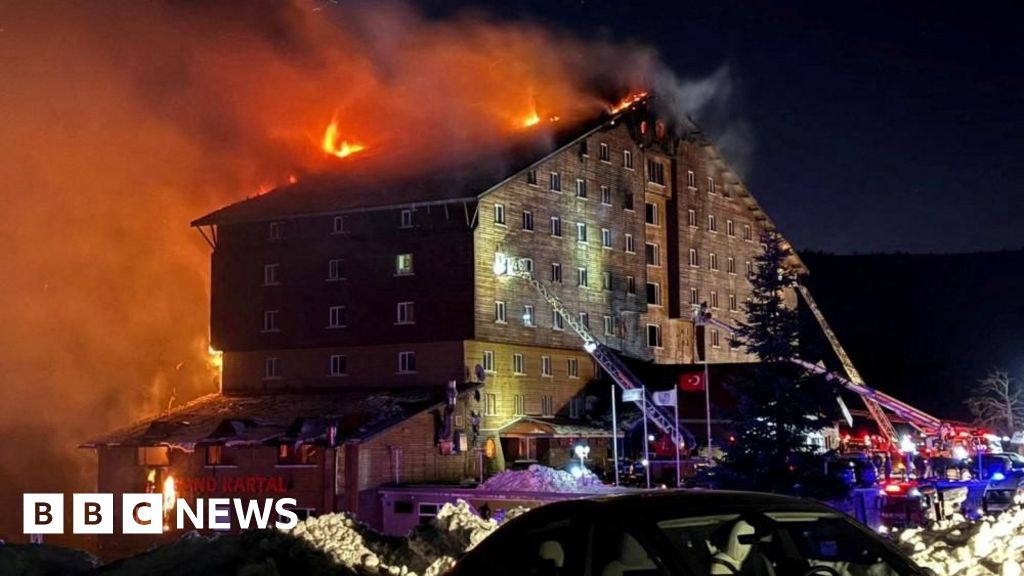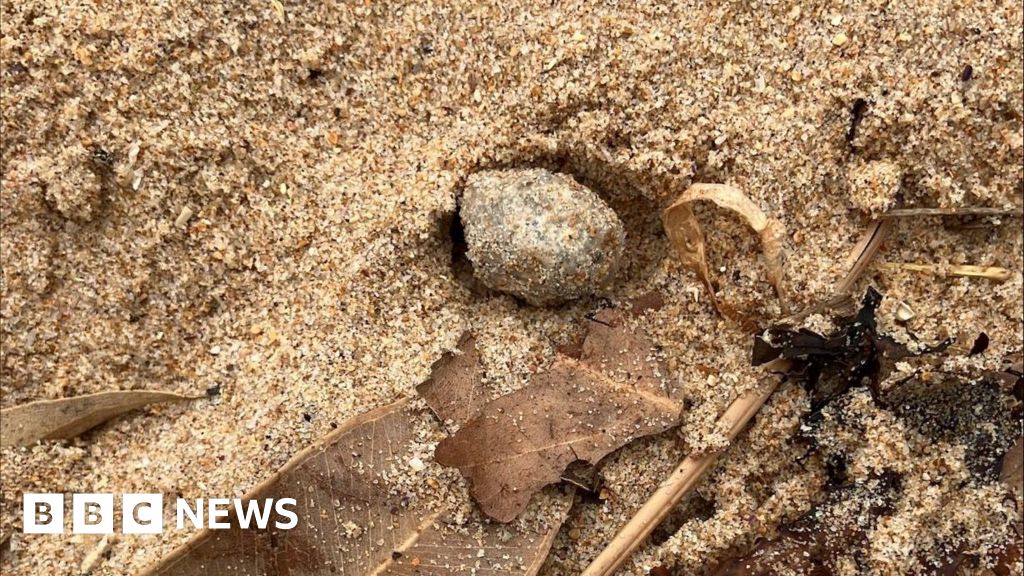ARTICLE AD BOX
 Image source, EPA-EFE
Image source, EPA-EFE
Mike Wendling & Tom Bateman in Washington
BBC News
The US says it is reviewing future weapons deliveries to Israel over concern it will begin a ground operation in the Gaza city of Rafah.
The US has already delayed a shipment "near-term assistance" of thousands of 2,000lb (907kg) and 500lb bombs to Israel.
"We are reviewing others," said State Department spokesman Matthew Miller.
The Israeli military has said that the two countries will resolve disagreements "behind closed doors".
On Wednesday, US Defence Secretary Lloyd Austin confirmed the delay of the bomb shipment - some of the most destructive munitions in Western military arsenals - while testifying in front of the US Senate.
The Israeli government said it was disappointed by the move.
But when asked directly whether the US was withholding arms shipments, Mr Austin said: "Again we are assessing, we have not made any final decisions on this yet".
"We're going to continue to do what's necessary to ensure that Israel has the means to defend itself," Mr Austin told a Senate panel.
"We did pause as we re-evaluated some of the security assistance we're providing."
He said the US commitment to Israel's defence remained "ironclad".
State Department spokesman Matthew Miller said on Wednesday that the US had "very serious concerns" about plans for an assault on Rafah, in southern Gaza.
President Joe Biden faces mounting domestic pressure - from some Democrats and parts of the US public - to rein in Israeli operations in Gaza amid rising civilian deaths and a worsening humanitarian situation.
US officials confirmed that no new aid supplies have been delivered in Gaza via two gates in the south since Israeli tanks rolled into southern Rafah and took control of the Palestinian side of the crossing with Egypt this week.
Despite firm US opposition, Israel appears poised to mount a large-scale invasion of Rafah, a congested part of southern Gaza that is Hamas' last stronghold in the territory.
US officials have warned that an operation in the city - where the population has swelled with refugees from other parts of Gaza - could lead to extensive civilian casualties.
Watch: Gazans ask 'where will we go now?' after Rafah evacuation orders
IDF spokesman Daniel Hagari said that the US had provided "unprecedented" security assistance since the beginning of the war, adding that disputes between the allies were resolved "behind closed doors in a matter-of-fact way".
But a leading member of Prime Minister Benjamin Netanyahu's Likud party in Israel told BBC's Newshour on Wednesday that he believes US domestic political considerations are behind the decision to halt the delivery of bombs.
"I totally disagree that the American election has nothing to do with it," said Boaz Bismuth, a member of the both the Israeli parliament and the foreign affairs and defence committee.
The weapons being held back by the US are related to a future delivery, so the move is unlikely to have an immediate impact. But given the rate at which Israel is bombing it will likely affect future strikes fairly soon.
Rafah has been a key entry point for aid, and the only exit for people able to flee, since the start of the war between Israel and Hamas last October.
The crossing remained closed on Wednesday morning, but the Israeli military said it was reopening the nearby Kerem Shalom crossing, which had been closed for four days because of Hamas rocket fire.
On Monday, the Israeli military ordered tens of thousands of civilians to begin evacuating eastern parts of Rafah city, ahead of what it called a "limited" operation to eliminate Hamas fighters and dismantle infrastructure.
Meanwhile, efforts continue to reach a ceasefire, alongside the release of Israeli hostages and Palestinian prisoners. In Cairo, delegations from Israel and Hamas have resumed negotiations through mediators.
A US official said that talks with Israel are "ongoing and have not fully addressed our concerns" and the US had been reviewing its weapons transfers to Israel since April.
Image source, EPA
Image caption,Israel has ordered civilians to evacuate Rafah ahead of its 'limited' military operation (photo taken 7 May in Rafah)
"We are especially focused on the end-use of the 2,000lb bombs and the impact they could have in dense urban settings as we have seen in other parts of Gaza," the official said.
Which weapons have been delayed?
The larger 2,000lb bombs are most likely to be Mk-84s or possibly BLU-109s - or both.
The former is a cheap, general purpose munition and the latter a penetration bomb designed for use against hardened or underground targets. Both can be fitted with kits that deliver precision capability using satellite navigation or laser guidance.
These bombs can be made to be very accurate, down to just a few metres. But in a dense, urban environment like Gaza the risk of so-called "collateral damage" - civilian casualties - is high.
We do not know exactly how Israel uses these weapons, but social media posts from the Israeli Air Force frequently show F-16 and F-15 jets loaded with Joint Direct Attack Munition kits.
The weapons are likely not just used in Gaza but also on targets in southern Lebanon belonging to the Iran-backed group Hezbollah, which has been involved in almost daily cross-border exchanges of fire with Israeli forces since the start of the Gaza war.
Israel launched the campaign to destroy Hamas in response to the group's cross-border attack on southern Israel on 7 October, during which about 1,200 people were killed and 252 others were taken hostage.
More than 34,780 people have been killed in Gaza since then, according to the territory's Hamas-run health ministry.
A deal agreed in November saw Hamas release 105 hostages in return for a week-long ceasefire and some 240 Palestinian prisoners in Israeli jails. Israel says 128 hostages are unaccounted for, 36 of whom are presumed dead.

 8 months ago
37
8 months ago
37








 English (US) ·
English (US) ·